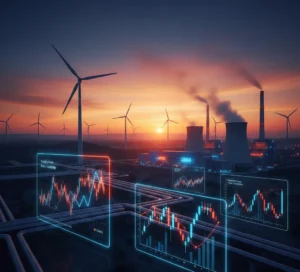What does ‘in credit’ mean on your energy bill?
Those who pay their gas and electricity costs via direct debit may notice the phrase ‘in credit’ appearing on their bills – but what does it mean? In this blog, we examine the terminology used to describe your balance on your energy bills to help you feel more in control of your finances.
What does ‘in credit’ mean on energy bills?
If you pay for your energy using a direct debit set-up, you pay a set amount each month that you’ve agreed with your supplier. This is an estimated monthly cost which is directly related to the average amount of energy your supplier thinks you’ll use.
However, the very nature of most people’s and businesses’ energy needs is that you don’t usually need the same amount of energy all throughout the year. Typically, energy costs go up during the winter months when energy is needed for heating homes and commercial buildings, and then they go back down during the summer when the extra heat isn’t needed.
Because of this, it’s almost certain that the estimated average monthly energy usage figure won’t fit your actual monthly usage most of the time. In the summer, you’ll likely use less energy than the estimate suggests, and you may use more than the estimate in the winter.
All this time, though, you’re still paying that same monthly amount – sometimes more than enough to cover your usage, and sometimes less. But in those months where your monthly payment exceeds the amount you actually owe, your energy supplier doesn’t just pocket the excess. That money is stored on your account, ready to be used at a later date. This means that in the winter, when you’re more likely to use more energy than you’re technically paying for, those excess funds you paid during the summer can be used to cover the additional costs of your energy use in the present.
You might also generate credit on your account if you’ve taken measures to reduce your energy usage. By using less, you owe less, and so you’ll build up more credit. Usually, your supplier would seek to change your payments to make them more reflective of your actual usage, though this may not happen immediately.
However you’ve built them up, these extra funds show on your energy bills as ‘credit’ so you can keep an eye on how much of your money is going towards your energy usage and how much is saved for later. If you’re ‘in credit’, that means you’ve spent more than you’ve used and you are accumulating excess funds to be used at a later date.
Typically, your supplier will take a look at your account annually and aim to refund you any remaining credit on your account. This could mean a direct lump sum payment, or it may be that they reduce your monthly payments temporarily in order to use up the credit.
If you so wish, you can also get in touch with your supplier at any time during your contract to request a refund of your credit. Suppliers are obliged to return your money to you as soon as possible, but there are circumstances where they can refuse. For example, if winter is on its way and your supplier thinks you’ll need the extra funds to stay on top of your energy costs, they can refuse to refund you the money.
What does a minus balance mean on your energy bill?
Just as you can pay more than needed to cover your energy costs, in some months you’ll likely pay less. If you’ve already built up credit, that’s fine, because your credit will be used to cover your additional costs. However, if you’ve yet to build up credit or you’ve used all of your credit up, you could reach a position where you owe your energy supplier money. This will show up as a negative balance on your energy bill.
This doesn’t always mean that you’re struggling to make ends meet. It could simply mean that your energy contract began in the winter, when costs are higher, and you simply haven’t been able to build up credit yet. Sometimes, your energy supplier may ask for a lump sum payment at the start of your contract to help prevent such situations.
If you find yourself with a negative balance, don’t panic. Your energy supplier won’t immediately switch you off – in fact, you’ll almost always be able to negotiate a deal with them to pay back any debt gradually, making it more affordable for you. And, depending on your contract, you may have a period of time during which no action is taken, allowing you to pay back the money by building up credit. If you have any concerns about what you need to do to pay back your energy debt, speak to Citizens Advice.





